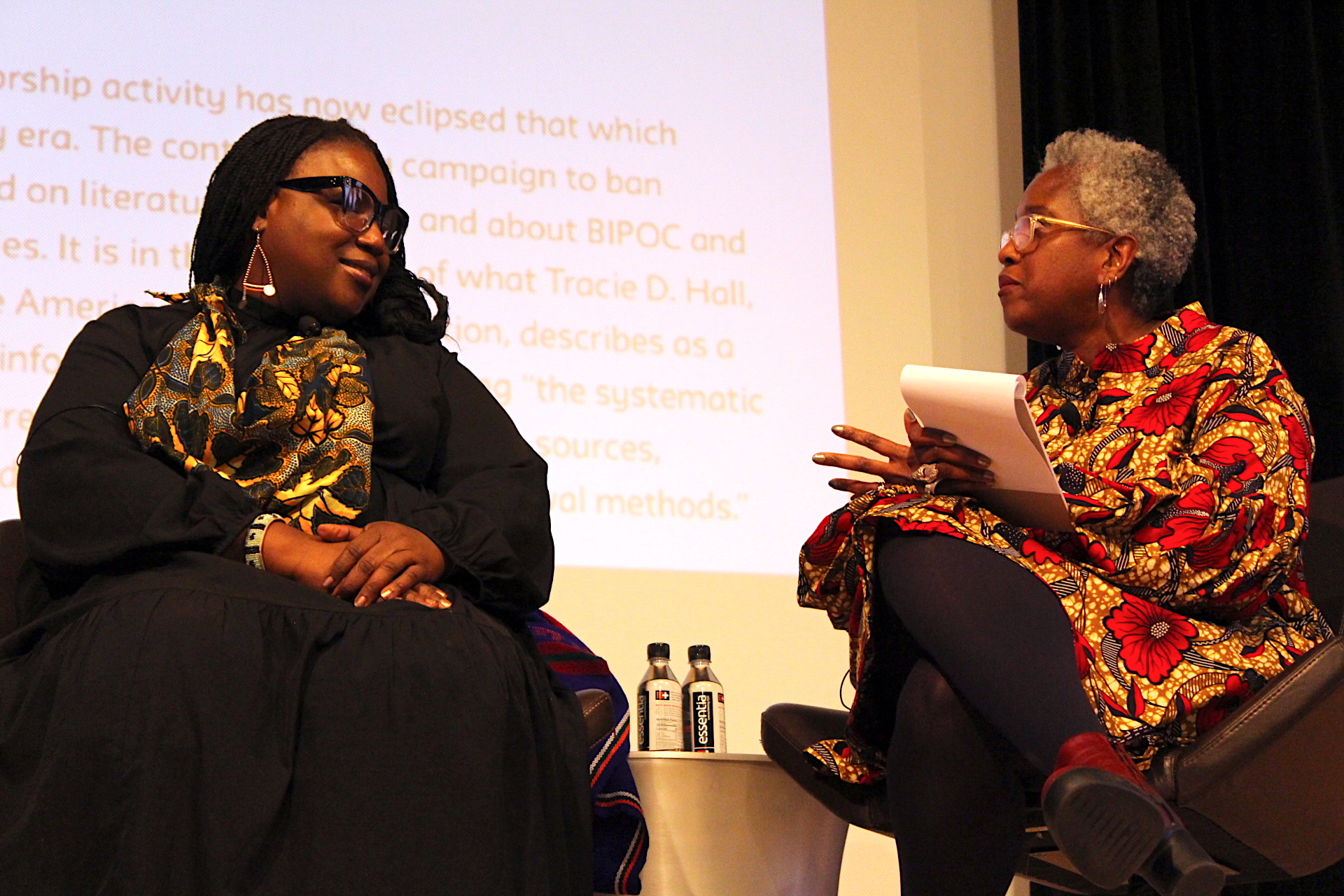
Tracie D. Hall Addresses Literacy, Censorship, and Book Bans as The New School’s Scholar-in-Residence
This February, several schools in Florida started removing or covering up books in classrooms and libraries to comply with a new law restricting lessons on race, racism, gender identity, and sexual orientation. In March, the Missouri State House of Representatives voted to defund public libraries. A similar law is under consideration in Texas.
“We’re looking at what I would say is McCarthyism 2.0. Why are books banned? Why were they banned in 1951? Why were they banned in 1947? Some of the same reasons, some of the same things,” said Tracie D. Hall, executive director of the American Library Association (ALA) and The New School’s scholar- in-residence, during Compulsory (il) Literacies: Intersecting Race, Information Redlining, and Limitations on the Right to Read, part of the Henry Cohen Lecture Series, presented by the Institute on Race, Power and Political Economy and the Office of Equity, Inclusion, and Social Justice.
Hall, who was recently named to the Time 100: Most Influential People of 2023—and was a featured speaker at the Time 100 Gala along with Michael B. Jordan, Natasha Lyonne, and Steven Spielberg—joined the university this April as scholar-in-residence. Her residency is part of The Moment Is Now: In Dialogue with Changemakers series. Each semester, The Moment Is Now brings to campus prominent and emerging scholars, thinkers, artists, and practitioners across disciplines who bring about positive change in the world and connect with the university’s academic strengths and mission. The series, which focuses on exploring and addressing current topics in art, politics, race, and culture, provides an opportunity for students, faculty, staff, and the surrounding community to engage with a range of perspectives and reimagine change.
Speaking at two New School events—the Cohen Lecture Series and How to Read the Room: Healing as Literacy, Literacy as Agency, Agency as Disruption of EDISJ Performativity—Hall discussed the connection between the contemporary rise in censorship and the growth of illiteracy among adults and lack of sources of basic literacy instruction over the last two decades.
“Contemporary public discourse around race and class—especially the racialization of class—often neglects to make the critical connection between the not-so-distant reality of de jure and de facto ‘compulsory’ illiteracy and treatment of information as contraband especially for African-Americans. We see that again and again, especially as we’re working on standards for carceral spaces, this notion of the book as contraband,” said Hall.
With the rise in book bans across the United States, especially books by Black, Indigenous, BIPOC, and LGBTQIA+ writers, Hall’s appointment as scholar-in-residence comes at an apt and critical time. As the executive director of the ALA, the oldest and largest library association in the world, Hall is on the frontlines of this new censorship battle. “There is an enduring, lasting connection between censorship and sociopolitical disenfranchisement. At the same time that contemporary systems, including educational systems, have normalized the espousal of equity, diversity, inclusion, and social justice [EDISJ], there has simultaneously been the ongoing normalization of censorship and adult low literacy in certain populations in the U.S. and the erosion or inequity of available outlets for basic literacy and digital instruction,” Hall said.
“This performance of EDISJ has also shrouded low literacy as a common root cause of inequitable educational attainment, of generational poverty. The biggest indicator of whether or not a young person will experience not just cyclical or incidental poverty but persistent or generational poverty is the literacy level of their parents or head of household. We see it is also connected to poor health outcomes and over-incarceration for BIPOC individuals and for white people living in regions whose economies were built on chattel slavery,” she continued.
While noting that these censorship efforts are nothing new but rather part of an ongoing effort dating back to the antebellum period, Hall spoke to the efforts of organizations like the ALA and of local communities to push back at these attempts. “At the time of the McCarthy era, books were being banned, librarians were being fired, entire boards of trustees were being asked to step down—exactly what we see today. What the ALA did was to say this censorship could pose an intellectual and existential threat to American librarianship and to libraries in general.”
From the ALA’s efforts in the 1950s to address censorship came the Library Bill of Rights, also known as the Reader’s Bill of Rights, stating that patrons have a right to the materials they request. The organization has continually pushed back against censorship efforts, creating an Office for Intellectual Freedom and conducting campaigns like Banned Books Week, which champions the freedom to read.
At a time when it seems as if any and all information should be at our fingertips, the United States is facing a daunting challenge to intellectual freedom. “I think that whereas previous generations in the United States have been preoccupied with the separation of church and state, there is reason to be vigilant about the separation of text and state, or imagination and state, or memory and state,” said Hall.